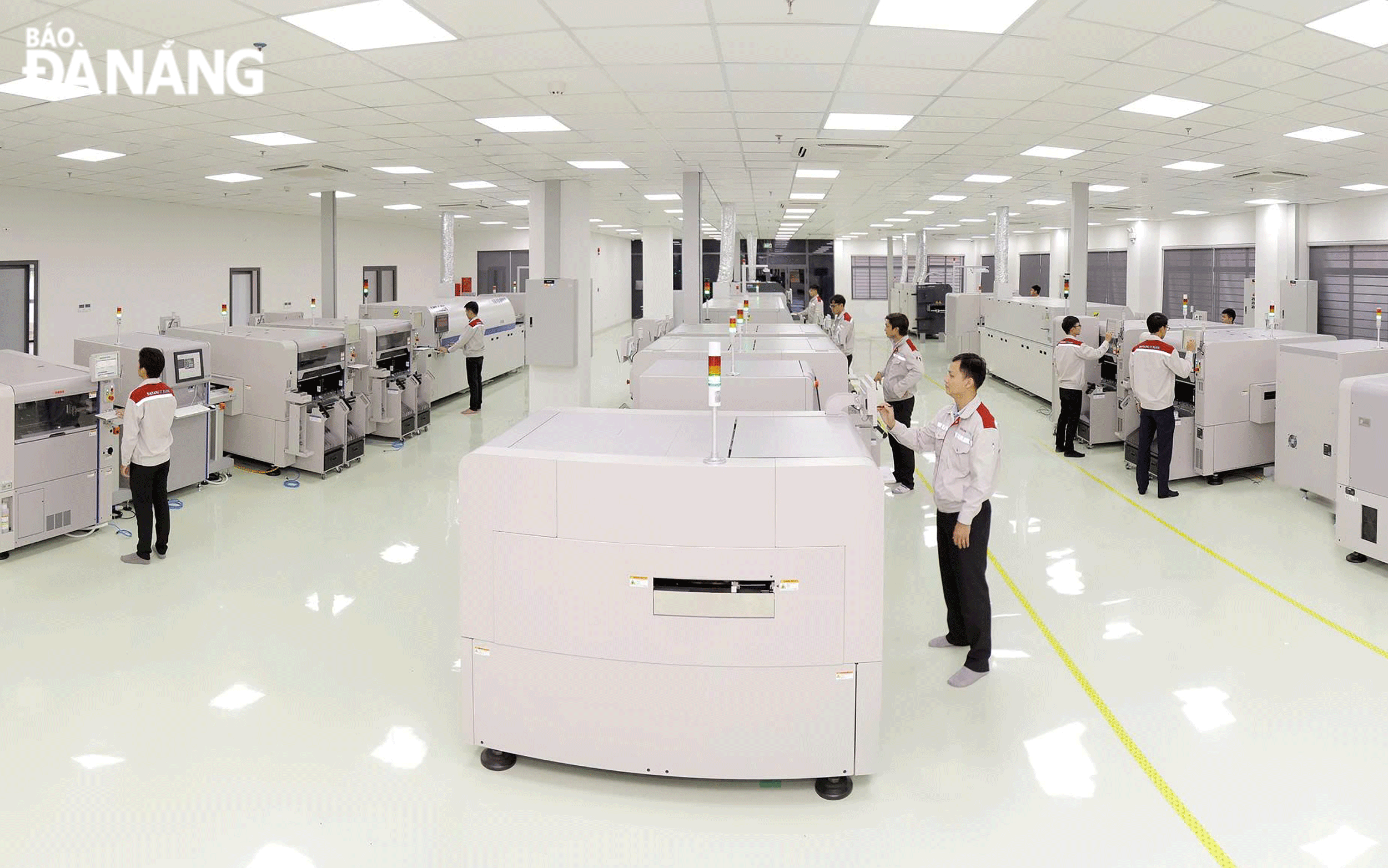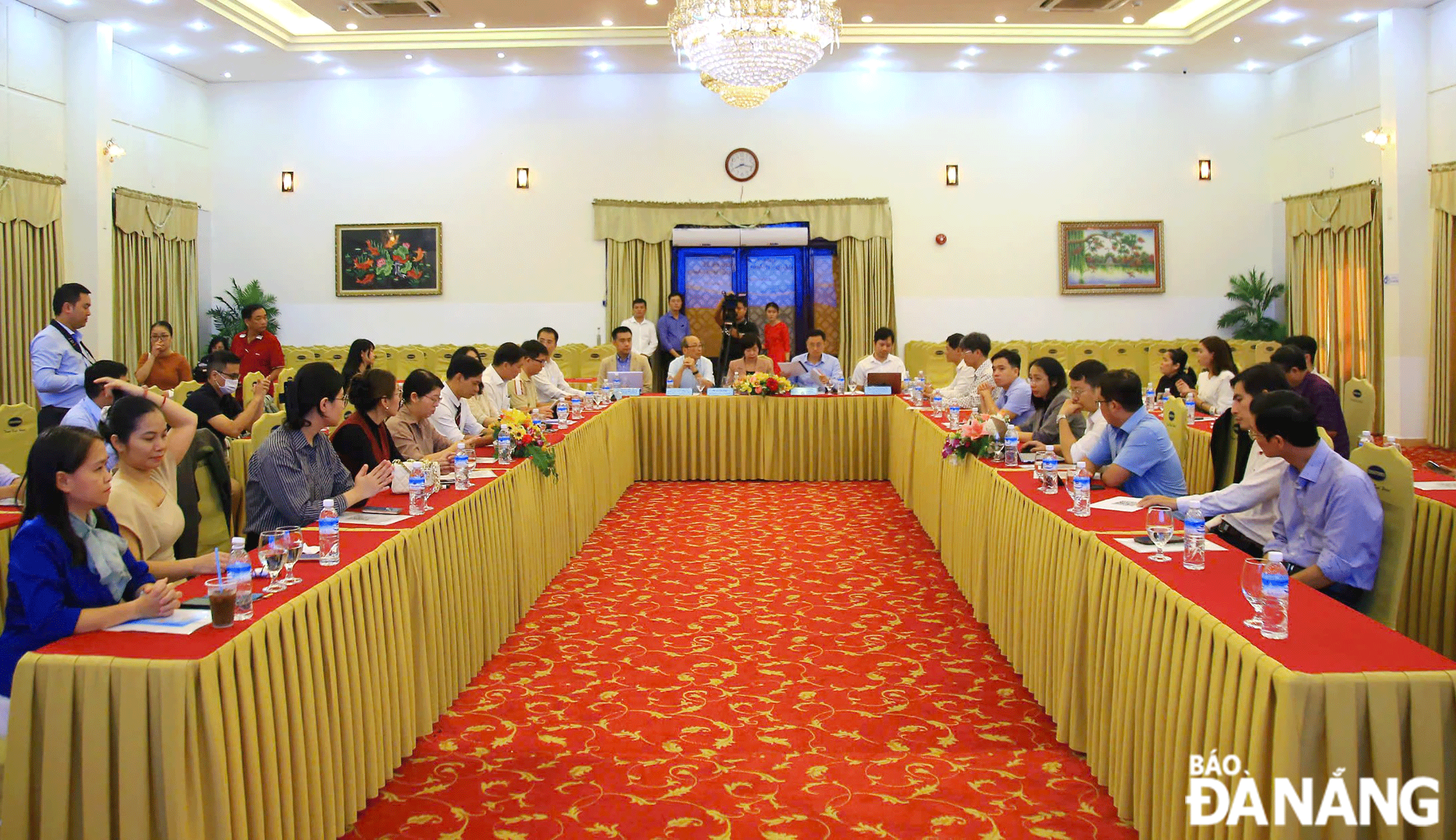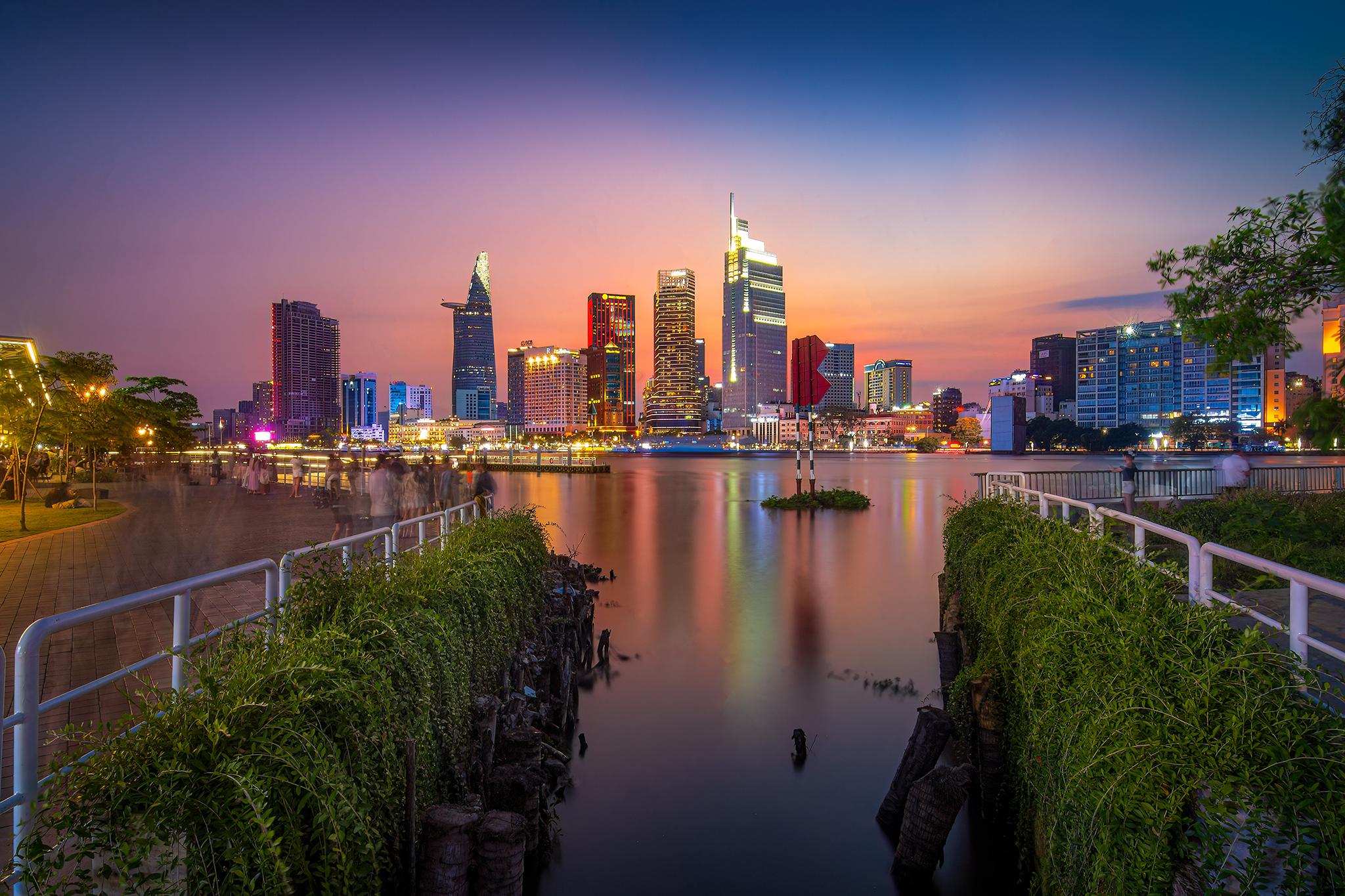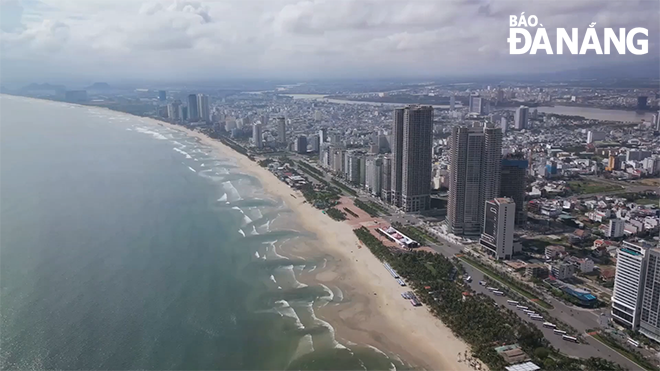Building Da Nang into a sustainable innovation centre
At recently-held workshop to contribute ideas to the project ‘Da Nang - the City of Innovation’ organised by the Da Nang Department of Science and Technology, experts, business representatives, and the startup community proposed constructive ideas to make the project closer to practical needs, aiming to promote the role of Da Nang as a startup centre in the Central Viet Nam and Central Highlands regions.
 |
| Produced at the SMT Hi-tech Electronic Equipment Research, Production and Assembly Factory in the Da Nang Hi-tech Park). Photo: MAI QUE |
Combining the trilateral strengths
According to Mr. Vo Duc Anh, the Deputy Director of the Da Nang Innovative Startup Support Centre, the main goal of the project is to identify priority areas for innovation, including information and communication technology (ICT), high-tech industry, biotechnology and healthcare as well as marine economy and logistics services. The research method will focus on analysing the current state of innovation in Da Nang and comparing it with models of innovative cities in the world.
Da Nang’s local innovation indicators are analyzed through 7 pillars, namely institutions, capital, people, infrastructure, market development level, enterprises, knowledge products and socio-economic impact.
In 2023, Da Nang ranked 4th but the city's indicators are very close to those of the localities in the top 10, so specific solutions are needed to improve these indicators. So as to promote innovation, the project proposes a series of solutions such as mechanisms and policies to encourage innovation to create a favourable environment for investment and development; develop high-quality human resources to support training and attract talents in priority areas; improve infrastructure, attract investment in facilities and technologies necessary for innovation; effective communication to raise awareness of innovation in the community.
Mr. Vo Duc Anh emphasised that the project is the “string” connecting “3 houses”: the state - researchers - investors together to create a favourable legal and policy environment when the state plays an important role in establishing policies and support mechanisms for innovation.
Connecting “3 houses” will encourage research and development, enhance connectivity and information sharing; develop high-quality human resources, promote sustainable development with innovative solutions that not only focus on profits but also pay attention to social and environmental issues.
 |
| Scene of the workshop on building the project ‘Da Nang – the City of Innovation’ Photo: CHIEN THANG |
Increasing the attractiveness of startups in Da Nang
When it comes to ways to increase the attractiveness of the city to lure more investment cooperation in many fields and industries, Assoc. Prof., Dr. Tran Ngoc Ca, a lecturer at the School of Management and Business, the Viet Nam National University - Ha Noi), suggested that Da Nang's model be associated with tourism development and promoting other strengths of the locality: marine economy, ports, logistics and traffic hubs.
In addition, innovation should be associated with turning the city into an ideal living and working space for scientists, managers and investors, thereby increasing cooperation and better connection with other innovation centres inside and outside the region, in the direction of exchanging experts, sharing technical facilities and cluster effects.
At the same time, it is necessary to connect with neighbouring provinces and cities such as Thua Thien - Hue and Quang Nam so that Da Nang's ecosystem is not limited by geography.
Mr. Nguyen Truong Phi, the Head of the Innovation Department, Department of Technology Development and Innovation (Ministry of Science and Technology), proposed to add to the project ‘Da Nang - the City of Innovation’ the following contents: boosting coordination in innovation; developing specific innovation policies suitable for each subject; encouraging the testing of new products and services; creating an environment to support innovation. Furthermore, Da Nang needs to promote connections between different industries to create a rich innovation ecosystem.
As suggested by Ms. Le Thi Thuc, the Deputy Director of the Department of Science and Technology, in the coming time, this department will direct the Da Nang Innovative Startup Support Centre to partner with the Da Nang Innovative Startup Network Coordination Council to add more contents to complete the project. In particular, it is a need to consider adding the ‘Net-Zero’ element to the project.
The project ‘Da Nang – the City of Innovation’ ensures that it reflects reality and it is consistent with the aspirations and strengths of Da Nang. The early implementation and development of the project will help open up opportunities for cooperation and comprehensive connection, towards developing Da Nang into a sustainable innovation centre and reaching international standards.
Reporting by C.THANG - M.QUE - Translating by A.THU








